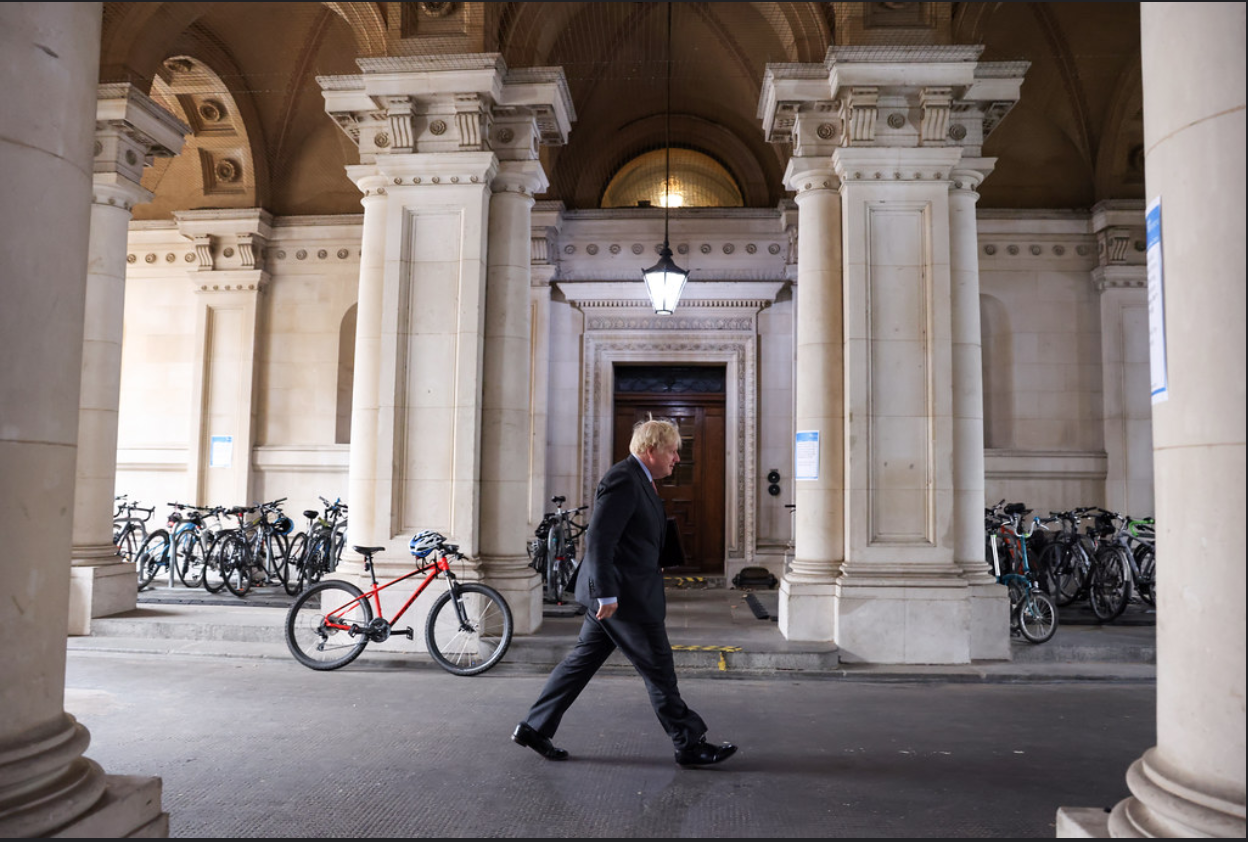Jonathan Stevenson (International Institute for Strategic Studies)
During the run-up to the June 2016 referendum on Brexit and for a time thereafter, Brexiteers neglected the importance of Northern Ireland – a 56% majority of which would vote to remain – in their calculations. In particular, they failed to appreciate the political role that the European Union played in facilitating the Good Friday Agreement by affording nationalists and unionists a shared political community that subsumed the United Kingdom and the Republic of Ireland. They also downplayed the function that the single market served in sustaining an unencumbered all-island economy, which reinforced peace by fostering a sense of cultural and commercial unity. A hard Brexit would mean an enforced border between Northern Ireland and the Republic, including security checkpoints and border guards – palpable representations of the sovereign separation that Northern Irish, Irish, British politicians had worked so hard to play down in the 1990s – that would antagonize Irish republicans and undermining the Good Friday Agreement.
Belatedly aware of this specter, Theresa May as UK prime minister proposed the “backstop,” whereby Northern Ireland would stay in the EU single market and the customs union pending a new trade agreement between the UK and the EU, deferring any need for a hard border. Pro-Brexit Tories and Northern Irish unionists opposed the arrangement, and broad discord over the government’s transition strategy led to May’s political demise and Boris Johnson’s ascension to prime minister. In place of the backstop, his government instituted the Northern Ireland Protocol as part of the EU–UK withdrawal agreement. Under the protocol, Northern Ireland would exit the single market and the customs union with the rest of the UK but continue to enforce EU customs rules and single-market product standards vis-à-vis the Irish Republic, so that no tariffs or restrictions would be placed on any goods crossing from Northern Ireland into the Republic. To accommodate EU concerns about goods from the British mainland finding their way to the Republic unregulated and tariff-free, there would have to be checks on them at Northern Irish ports.
Hard-line Brexiteers consider the protocol an encroachment on UK sovereignty, and Ulster unionists rue its separation of Northern Ireland from the rest of the United Kingdom. With UK–EU negotiations on a permanent trade agreement stalled and the 1 January 2021 date for the UK’s formal exit from the Union drawing near, Johnson is threatening to unilaterally rewrite the terms of the protocol by way of the draft UK Internal Market Bill, published on 9 September, even though the protocol has the force of international law. This prompted the resignation of Jonathan Jones, the government’s most senior lawyer. On 1 October, the European Commission began infringement proceedings against the UK. Johnson’s precise motivations for disrupting negotiations remain opaque. Tabling the bill may just be a gambit for increasing the UK’s leverage. But it could also reflect an intensification of Johnson’s conviction, under pressure from hard-liners, that the UK’s break with the EU should be as sharp and complete as possible.
Whatever his reasons, the British government is again marginalizing Northern Irish political priorities and jeopardizing the province’s peace and stability. Even more conspicuously, he is manifesting extreme myopia about the cohesion of the United Kingdom itself. Granted, a hard border with physical checkpoints probably would not instantly revitalize the Troubles. But it would certainly raise the hackles of Irish republicans and make it more difficult for nationalist politicians – especially those of Sinn Fein, now one of the two strongest parties in Northern Ireland and the third most powerful in the south – to instill patience among their constituents, including former and aspiring republican militants, as they have been largely able to do since the Good Friday Agreement was signed 22 years ago. Beyond that, it would increase the popular appeal of dissident armed Irish republican groups and perhaps spur their recruitment.
Furthermore, the Johnson government’s abrogation of the protocol would damage Britain’s international credibility and good faith and amplify the trauma of the UK’s separation from the EU. For instance, US Speaker of the House Nancy Pelosi has indicated that any move threatening peace in Northern Ireland would scupper the UK’s chances of a trade agreement with the US. Those favoring Scottish independence would also infer London’s disinclination to accommodate the concerns of the UK’s subsidiary countries, bolstering their determination to hasten a second referendum on Scotland’s independence. Some 62% of Scots having voted to remain in the EU, polls now tilt towards independence. Were Scotland to secede, Irish nationalists would likely insist on a referendum on reunification sooner rather than later, tacitly on pain of an eventual resumption of armed conflict. The United States – at least under a Democratic president, which looks increasingly probable – would be apt to support such a call, having helped broker the Good Friday Agreement when Bill Clinton was president. Politically as well as prudentially, London might judge it prudent to accede to holding the referendum to preserve the “special relationship.” Northern Irish nationalists may end up having considerably more leverage than Johnson seems to imagine.
Jonathan Stevenson is Senior Fellow for US Defence at the International Institute for Strategic Studies and managing editor of Survival, and author of “We Wrecked the Place”: Contemplating an End to the Northern Irish Troubles (The Free Press/Simon & Schuster, 1996). He lived in Belfast from 1993 through 1999.
This analysis is part of a series of comments on ‘Northern Ireland in a Post-Brexit scenario’.
Image credit: Flickr No 10 Downing Street, Boris Johnson Cabinet meeting. The Prime Minister Boris Johnson walks back to No10 after chairing his weekly Cabinet



